Charles Munch - The Complete Polydor, Decca, Deutsche Grammophon And L’Oiseau-Lyre Recordings (2020)
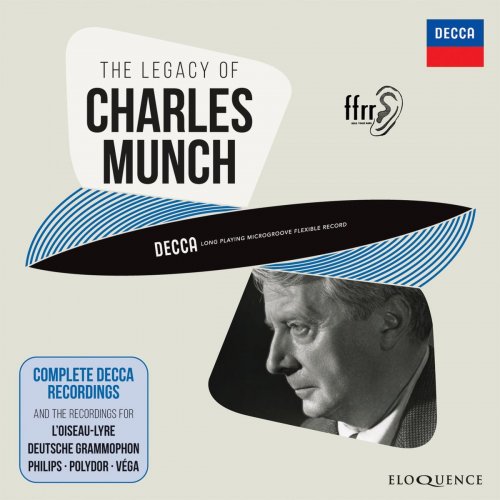
Artist: Charles Munch
Title: The Complete Polydor, Decca, Deutsche Grammophon And L’Oiseau-Lyre Recordings
Year Of Release: 2020
Label: Universal Music
Genre: Classical
Quality: FLAC (tracks)
Total Time: 850:29 min
Total Size: 3,3 GB
WebSite: Album Preview
Tracklist:Title: The Complete Polydor, Decca, Deutsche Grammophon And L’Oiseau-Lyre Recordings
Year Of Release: 2020
Label: Universal Music
Genre: Classical
Quality: FLAC (tracks)
Total Time: 850:29 min
Total Size: 3,3 GB
WebSite: Album Preview
001. Piano Concerto for the Left Hand in D Major, M. 82
002. Fantasy for Piano and Orchestra, Op. 62
003. Sinfonia Concertante in B-Flat Major, Hob.I:105 : 1. Allegro
004. Sinfonia Concertante in B-Flat Major, Hob.I:105 : 2. Andante
005. Sinfonia Concertante in B-Flat Major, Hob.I:105 : 3. Allegro con spirito
006. Adagio and Fugue in C Minor, K. 546 : 1. Adagio
007. Adagio and Fugue in C Minor, K. 546 : 2. Fugue
008. Symphony No. 8 in F Major, Op. 93 : 1. Allegro vivace e con brio
009. Symphony No. 8 in F Major, Op. 93 : 2. Allegretto scherzando
010. Symphony No. 8 in F Major, Op. 93 : 3. Tempo di menuetto
011. Symphony No. 8 in F Major, Op. 93 : 4. Allegro vivace
012. Symphony No. 5 in D Minor, Op. 107, MWV N 15 "Reformation" : 1. Andante - Allegro con fuoco
013. Symphony No. 5 in D Minor, Op. 107, MWV N 15 "Reformation" : 2. Allegro vivace
014. Symphony No. 5 in D Minor, Op. 107, MWV N 15 "Reformation" : 3. Andante
015. Symphony No. 5 in D Minor, Op. 107, MWV N 15 "Reformation" : 4. Choral :Ein' Feste Burg ist unser Gott!:
016. Overture :Benvenuto Cellini:, Op. 23
017. Roméo et Juliette, Op. 17, H 79 : Pt. 2 : Roméo seul - Tristesse - Concert et bal
018. Roméo et Juliette, Op. 17, H 79 : Pt. 3 : Scène d'amour
019. Roméo et Juliette, Op. 17, H 79 : Pt. 2 : Scherzo. La Reine Mab
020. Les Troyens, H 133 : Act 4 : No. 29 Chasse Royale et Orage - Pantomime
021. Overture :Le Corsaire:, H 101
022. Symphony No. 4 in D Minor, Op. 120 : 1. Ziemlich langsam - Lebhaft
023. Symphony No. 4 in D Minor, Op. 120 : 2. Romanze. Ziemlich langsam
024. Symphony No. 4 in D Minor, Op. 120 : 3. Scherzo
025. Symphony No. 4 in D Minor, Op. 120 : 4. Langsam - Lebhaft - Schneller - Presto
026. Violin Concerto in D Major, Op. 77 : 1. Allegro non troppo
027. Violin Concerto in D Major, Op. 77 : 2. Adagio
028. Violin Concerto in D Major, Op. 77 : 3. Allegro giocoso, ma non troppo vivace - Poco più presto
029. Variations symphoniques
030. Symphony in D Minor, FWV 48 : 1. Lento - Allegro ma non troppo - Allegro
031. Symphony in D Minor, FWV 48 : 2. Allegretto
032. Symphony in D Minor, FWV 48 : 3. Allegro non troppo
033. Le rouet d'Omphale, Op. 31
034. Danse macabre, Op. 40
035. Symphony in C Major, WD 33 : 1. Allegro vivo
036. Symphony in C Major, WD 33 : 2. Adagio
037. Symphony in C Major, WD 33 : 3. Scherzo. Allegro vivace
038. Symphony in C Major, WD 33 : 4. Finale. Allegro vivace
039. La jolie fille de Perth (Suite) : 4. Danse bohémienne
040. Pelléas et Mélisande (Suite), Op. 80 : 1. Prélude
041. Pelléas et Mélisande (Suite), Op. 80 : 2. Fileuse
042. Pelléas et Mélisande (Suite), Op. 80 : 3. Sicilienne
043. Pelléas et Mélisande (Suite), Op. 80 : 4. La mort de Mélisande
044. Pavane, Op. 50
045. Fervaal, Op. 40 : Prélude
046. Symphony No. 1 in D Major, Op. 25 "Classical Symphony" : 1. Allegro
047. Symphony No. 1 in D Major, Op. 25 "Classical Symphony" : 2. Larghetto
048. Symphony No. 1 in D Major, Op. 25 "Classical Symphony" : 3. Gavotta. Non troppo allegro
049. Symphony No. 1 in D Major, Op. 25 "Classical Symphony" : 4. Finale. Vivace
050. Symphony No. 6 in B Minor, Op. 74, TH 30 "Pathétique" : 1. Adagio - Allegro non troppo
051. Symphony No. 6 in B Minor, Op. 74, TH 30 "Pathétique" : 2. Allegro con grazia
052. Symphony No. 6 in B Minor, Op. 74, TH 30 "Pathétique" : 3. Allegro molto vivace
053. Symphony No. 6 in B Minor, Op. 74, TH 30 "Pathétique" : 4. Finale. Adagio lamentoso - Andante
054. Images for Orchestra, L. 122 : 2. Ibéria : I. Par les rues et par les chemins
055. Images for Orchestra, L. 122 : 2. Ibéria : II. Les parfums de la nuit
056. Images for Orchestra, L. 122 : 2. Ibéria : III. Le matin d'un jour de fête
057. Berceuse héroïque
058. Petite Suite, Op. 39 : 1. Aubade
059. Petite Suite, Op. 39 : 2. Pastorale
060. Petite Suite, Op. 39 : 3. Masquerade
061. Le festin de l'araignée (Fragments symphoniques), Op. 17 : 1. Prélude
062. Le festin de l'araignée (Fragments symphoniques), Op. 17 : 2. Entrée des fournis
063. Le festin de l'araignée (Fragments symphoniques), Op. 17 : 3. Danse du papillon
064. Le festin de l'araignée (Fragments symphoniques), Op. 17 : 4. Eclosion de l'éphémère
065. Le festin de l'araignée (Fragments symphoniques), Op. 17 : 5. Danse de l'éphémère et des chenilles
066. Le festin de l'araignée (Fragments symphoniques), Op. 17 : 6. Funérailles de l'éphémère
067. Le festin de l'araignée (Fragments symphoniques), Op. 17 : 7. La nuit tombe sur le jardin solitaire
068. Suite in F Major, Op. 33 : 1. Prélude
069. Suite in F Major, Op. 33 : 2. Sarabande
070. Suite in F Major, Op. 33 : 3. Gigue
071. Piano Concerto in G Major, M. 83 : 1. Allegramente
072. Piano Concerto in G Major, M. 83 : 2. Adagio assai
073. Piano Concerto in G Major, M. 83 : 3. Presto
074. Daphnis et Chloé, Suite No. 1 : 1. Nocturne
075. Daphnis et Chloé, Suite No. 1 : 3. Danse guerrière
076. Daphnis et Chloé, Suite No. 2 : 1. Lever du jour
077. Daphnis et Chloé, Suite No. 2 : 2. Pantomime
078. Daphnis et Chloé, Suite No. 2 : 3. Danse générale
079. Boléro
080. Gaîté Parisienne : Overture
081. Gaîté Parisienne : Allegro brillante
082. Gaîté Parisienne : Polka
083. Gaîté Parisienne : Ländler (Allegro)
084. Gaîté Parisienne : Mazurka (Allegro)
085. Gaîté Parisienne : Valse
086. Gaîté Parisienne : (Allegro)
087. Gaîté Parisienne : Polka (2)
088. Gaîté Parisienne : Valse lente
089. Gaîté Parisienne : Tempo di marcia
090. Gaîté Parisienne : Valse (2)
091. Gaîté Parisienne : Allegro vivo - Valse
092. Gaîté Parisienne : Allegro
093. Gaîté Parisienne : Valse (3)
094. Gaîté Parisienne : Allegro - Cancan
095. Gaîté Parisienne : Quadrille - Cancan
096. Gaîté Parisienne : Allegro moderato
097. Gaîté Parisienne : Allegro (2)
098. Gaîté Parisienne : Leggiero
099. Gaîté Parisienne : Vivo
100. Gaîté Parisienne : Barcarolle
101. Carmen Suite (Excerpts from Suites Nos. 1 & 2) : Les toréadors
102. Carmen Suite (Excerpts from Suites Nos. 1 & 2) : Aragonaise
103. Carmen Suite (Excerpts from Suites Nos. 1 & 2) : Intermezzo
104. Carmen Suite (Excerpts from Suites Nos. 1 & 2) : Les dragons d'Alcala
105. Carmen Suite (Excerpts from Suites Nos. 1 & 2) : Habanera
106. Carmen Suite (Excerpts from Suites Nos. 1 & 2) : La garde montante
107. Carmen Suite (Excerpts from Suites Nos. 1 & 2) : Danse bohème
108. Pines of Rome, P. 141 : The Pines of Villa Borghese
109. Pines of Rome, P. 141 : The Pines near a Catacomb
110. Pines of Rome, P. 141 : The Pines of the Janiculum
111. Pines of Rome, P. 141 : The Pines of the Appian Way
112. Fountains of Rome, P. 106 : The Fountain of Valle Giulia at Dawn
113. Fountains of Rome, P. 106 : The Triton Fountain at Morning
114. Fountains of Rome, P. 106 : The Fountain of Trevi at Midday
115. Fountains of Rome, P. 106 : The Villa Medici Fountain at Sunset
116. L'Arlésienne Suite No. 1, WD 40 : Prélude
117. L'Arlésienne Suite No. 1, WD 40 : Minuetto
118. L'Arlésienne Suite No. 1, WD 40 : Adagietto
119. L'Arlésienne Suite No. 1, WD 40 : Carillon
120. L'Arlésienne Suite No. 2 : Farandole
121. Symphonie n 3 : I. Pesante e marcato
122. Symphonie n 3 : II. Presto
123. Symphonie n 3 : III. Adagio
124. Symphonie n 3 : IV. Energetico
125. Bacchus et Ariane - Ballet Suite No.2, Op.43 : I. Prélude. Ariane dort - Réveil d'Ariane
126. Bacchus et Ariane - Ballet Suite No.2, Op.43 : II. Elle regarde avec étonnement de tous côtés
127. Bacchus et Ariane - Ballet Suite No.2, Op.43 : III. Le baiser - L'enchantement dionysiaque
128. Bacchus et Ariane - Ballet Suite No.2, Op.43 : IV. Danse d'Ariane et de Bacchus - Bacchanale - Le couronnement d'Ariane
129. Symphonie fantastique, H 48 : 1. Rêveries - Passions. Largo - Allegro agitato e appassionato assai - Religiosamente
130. Symphonie fantastique, H 48 : 2. Un bal. Valse. Allegro non troppo
131. Symphonie fantastique, H 48 : 3. Scène aux champs. Adagio
132. Symphonie fantastique, H 48 : 4. Marche au supplice. Allegretto non troppo
133. Symphonie fantastique, H 48 : 5. Songe d’une nuit de sabbat. Larghetto - Allegro
134. Requiem, Op.5 (Grande Messe des Morts) : 1. Requiem - Kyrie
135. Requiem, Op.5 (Grande Messe des Morts) : 2. Dies irae - Tuba mirum
136. Requiem, Op.5 (Grande Messe des Morts) : 3. Quid sum miser
137. Requiem, Op.5 (Grande Messe des Morts) : 4. Rex tremendae
138. Requiem, Op.5 (Grande Messe des Morts) : 5. Quaerens me
139. Requiem, Op.5 (Grande Messe des Morts) : 6. Lacrymosa
140. Requiem, Op.5 (Grande Messe des Morts) : 7. Domine Jesu Christe
141. Requiem, Op.5 (Grande Messe des Morts) : 8. Hostias
142. Requiem, Op.5 (Grande Messe des Morts) : 9. Sanctus
143. Requiem, Op.5 (Grande Messe des Morts) : 10. Agnus Dei
The inspirational French maestro on disc: an unrivalled retrospective, covering three decades of incandescent music-making, including recordings new to CD and long unavailable, newly remastered and comprehensively documented.
In the memories of most record-buyers, Charles Munch was indelibly and almost exclusively associated with the RCA label, thanks to a string of spectacular albums made during his 13-year-long tenure as Music Director of the Boston Symphony Orchestra. From telecasts of that era too is fixed the image of the white-haired, square-jawed maestro urging on his Boston musicians to ever greater heights of intensity with gestures of both elemental passion and delicious legerdemain.
These qualities were also present, however, in the recordings made by Munch for several other labels throughout his career. They have now been brought together by Eloquence in a set that offers the most rounded portrait yet of the conductor throughout his career. His earliest recordings were made in Paris for Polydor and for L’Oiseau Lyre in 1938, of concertante works by Ravel, Widor (the rarely heard Fantasie for piano and orchestra) and Haydn: these have been newly transferred from original masters by Mark Obert-Thorn.
From the beginning of his postwar contract with Decca come London-made recordings of French repertoire (Berlioz, Bizet, Debussy, Fauré, Franck, Ravel, Roussel, Saint-Saëns) and Austro-German symphonies (Beethoven 8, Mendelssohn 5, Schumann 4), conducting the orchestra of the Société des Concerts du Conservatoire which he had led since 1939. In these performances, sustained throughout by a sweeping legato line, we may recall Munch’s insistence that ‘To be a conductor is not a métier but rather a sacred rite.’ This is no less true of a ragged but thrilling ‘Pathétique’ Symphony from 1948, now recorded in Paris.
After the Boston years, Munch struck up a partnership with the New Philharmonia Orchestra (1965-7), which yielded albums of Bizet, Offenbach and Respighi in which the conjuror’s magic fire remained undimmed. He also returned with them to a suite from Roussel’s Bacchus et Ariane ballet which was always a Munch favourite in concert. His last studio account – from Budapest in 1966 – of the Symphonie fantastique is also here, having appeared on Fidelio, Hungaroton and Philips, but long unavailable. The set concludes with more Berlioz – Munch’s sole recording for Deutsche Grammophon, of the Grande messe des morts. This was made in Munich in 1967, the year before his death, and is a moving testament to the conductor’s career-long dedication to realizing the most original orchestral and acoustic possibilities explored by a composer who, like Munch himself, always went his own way.
In the memories of most record-buyers, Charles Munch was indelibly and almost exclusively associated with the RCA label, thanks to a string of spectacular albums made during his 13-year-long tenure as Music Director of the Boston Symphony Orchestra. From telecasts of that era too is fixed the image of the white-haired, square-jawed maestro urging on his Boston musicians to ever greater heights of intensity with gestures of both elemental passion and delicious legerdemain.
These qualities were also present, however, in the recordings made by Munch for several other labels throughout his career. They have now been brought together by Eloquence in a set that offers the most rounded portrait yet of the conductor throughout his career. His earliest recordings were made in Paris for Polydor and for L’Oiseau Lyre in 1938, of concertante works by Ravel, Widor (the rarely heard Fantasie for piano and orchestra) and Haydn: these have been newly transferred from original masters by Mark Obert-Thorn.
From the beginning of his postwar contract with Decca come London-made recordings of French repertoire (Berlioz, Bizet, Debussy, Fauré, Franck, Ravel, Roussel, Saint-Saëns) and Austro-German symphonies (Beethoven 8, Mendelssohn 5, Schumann 4), conducting the orchestra of the Société des Concerts du Conservatoire which he had led since 1939. In these performances, sustained throughout by a sweeping legato line, we may recall Munch’s insistence that ‘To be a conductor is not a métier but rather a sacred rite.’ This is no less true of a ragged but thrilling ‘Pathétique’ Symphony from 1948, now recorded in Paris.
After the Boston years, Munch struck up a partnership with the New Philharmonia Orchestra (1965-7), which yielded albums of Bizet, Offenbach and Respighi in which the conjuror’s magic fire remained undimmed. He also returned with them to a suite from Roussel’s Bacchus et Ariane ballet which was always a Munch favourite in concert. His last studio account – from Budapest in 1966 – of the Symphonie fantastique is also here, having appeared on Fidelio, Hungaroton and Philips, but long unavailable. The set concludes with more Berlioz – Munch’s sole recording for Deutsche Grammophon, of the Grande messe des morts. This was made in Munich in 1967, the year before his death, and is a moving testament to the conductor’s career-long dedication to realizing the most original orchestral and acoustic possibilities explored by a composer who, like Munch himself, always went his own way.
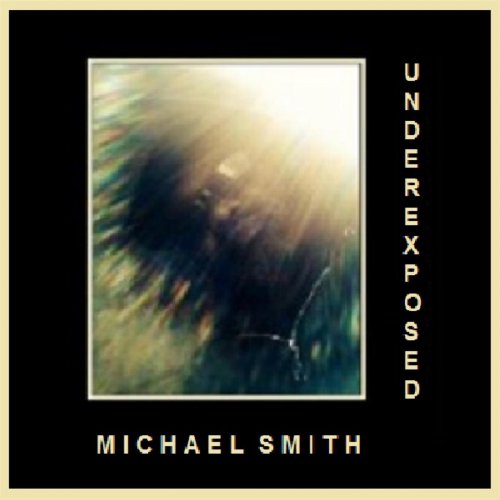
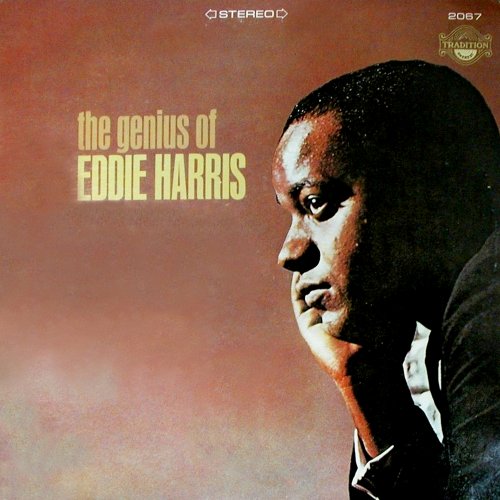
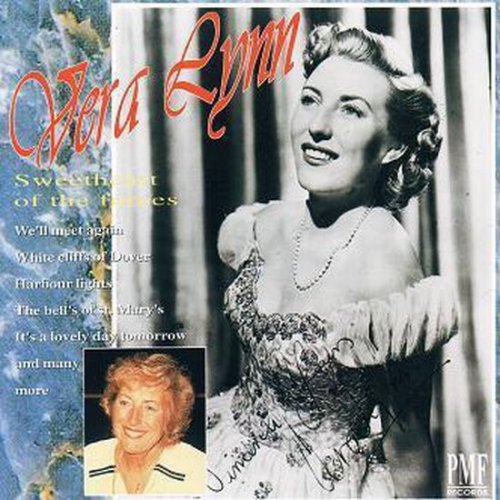
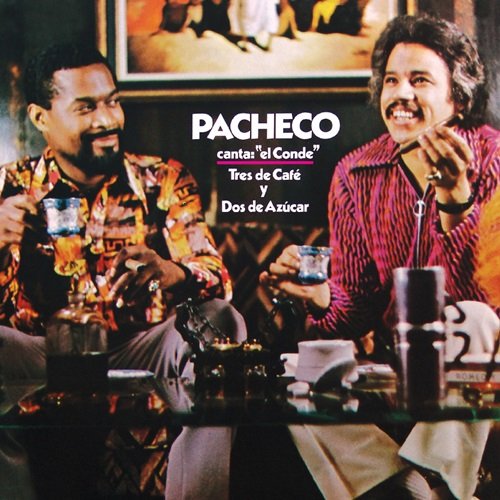

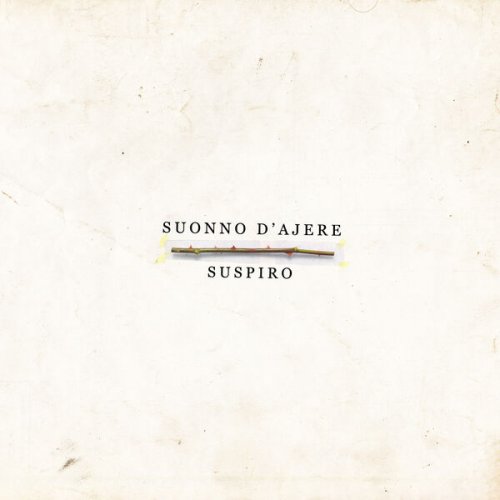

![Eddie "Lockjaw" Davis - Land Of Dreams (1982) [Vinyl] Eddie "Lockjaw" Davis - Land Of Dreams (1982) [Vinyl]](https://www.dibpic.com/uploads/posts/2026-01/1767962313_5.jpg)
